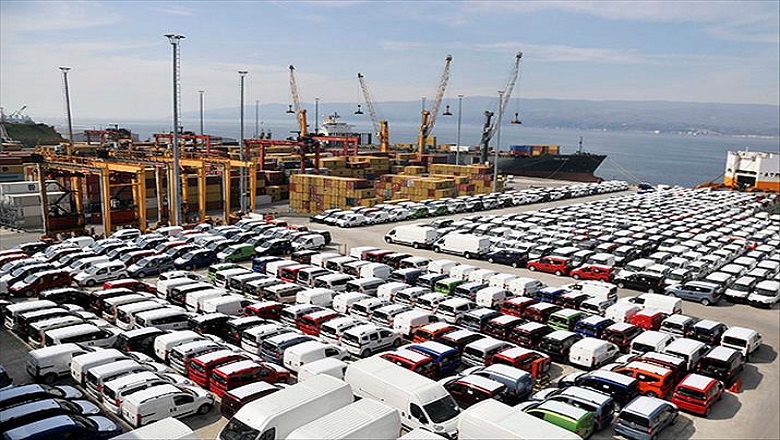Interview: Turkey and Financial Crisis in the Eurozone Countries
Turkey has avoided some of the worst of the financial crisis facing many advanced economies because the majority of its public debt is held in Turkish Liras, says an economic expert who in the past had called for the country to join the eurozone. ‘Thank God today we are not in the eurozone,’ says Göngör Uras.
Turkey’s having not thus far joined the euro has helped save it from the financial crisis wreaking havoc in many developed economies, according to veteran financial journalist Göngör Uras.
The country’s economy has been doing relatively well because most of its debt is in Turkish Liras, he told the Hürriyet Daily News in a recent interview.
“In the past we called for Turkey to join the eurozone. Thank God today we are not in the eurozone,” Uras said, adding that despite the economic troubles facing the European Union, the 27-nation bloc is still very important for Turkey.
Who is Göngör Uras?
A graduate of Ankara University’s Political Science Faculty, which has produced numerous Turkish politicians and civil servants, Göngör Uras worked in the State Planning Organization between 1962 and 1974.He served as the secretary-general of the Turkish Industry & Business Association, or TÜSİAD, from 1974 to 1980 and then worked for 21 years as the head of the board of a prominent insurance company. Uras’ first newspaper article appeared in 1960. He has been writing for daily Dünya, one of Turkey’s most prestigious economic dailies, for the past 23 years. After having written commentaries for daily Sabah, he currently writes for daily Milliyet.
INTERVIEW
Q: What exactly happened during the past two weeks, which have been extremely turbulent for the economy?
A: Part of the problem is that Turkey enters up and down cycles very quickly. We get psychologically too quickly affected [by external turbulence]. Turkish people are too sensitive to economy politics. In Turkey we monitor prices very closely. For instance the best-selling magazines are those about cars. Not because readers plan to sell their cars tomorrow – they want to monitor the value of their cars for times of trouble. Since we do not have social security we closely monitor prices. In other countries, people do not get up in the morning to see the value of the euro or the dollar. But since we have foreign exchange as a currency unit in addition to the lira, we closely monitor whether the dollar went up or down.
What happened over the past 10 days is a partial readjustment of the foreign exchange rate. For a long time we had distanced ourselves from realistic exchange rates. I have been saying since 2003 that there is a current account deficit problem and this is about cheap foreign currency. We have been implementing a high-interest-rate, cheap-foreign-currency policy. When interest rates are high, money enters the country and the value of foreign currency goes down.
There is a false conviction in the public opinion that we are spending too much with foreign currency, and that’s why we have a deficit. In no country can you spend first and then find the currency. If the currency is cheap, you spent it. When the currency is cheap, Turkish people start importing more. But what happens is that those in the production sector also import intermediate goods. Economy Minister Zafer Çağlayan said that in the 1970s we used to produce compressors to make refrigerators. Currently we have exported $600 million worth of refrigerators but imported $400 million worth of compressors. With cheap foreign currency, Turkish industry prefers to import rather than produce. I am against the current account deficit because cheap foreign currency has damaged the structure of Turkey’s industry.
Q: Since the June 12 general elections we have been hearing contradictory messages. First a high-level ruling party official warned people not to spend too much. There was more talk about taking measures against the current account deficit. Then the Central Bank made decisions that, rather than restricting consumption, were aimed at fighting a possible recession.
Q: First of all, the government started to grasp the importance of the current account deficit even before the elections. There was more talk about overheating. The government was planning to take the current account deficit problem under control. In order to curb consumption there was talk about restrictions in bank credits. But then it saw the crisis in the world was getting more serious and panic had started in Turkey. Since it saw that the crisis could shake the Turkish economy, it changed the policy.
If you put the brakes on inside the country – that is, if you curb consumption – and the crisis reduces Turkey’s exports abroad, this will lead to recession. The government decided to put aside the problem of the current account deficit and continue economic growth, thinking maybe the readjustment in foreign currency would do the job better than introducing measures to curb consumption.
This readjustment now is a step in the right direction. But what is important is that we should not overdo it. This readjustment needs to be digestible by the Turkish economy. Some of the Turkish industrialists buy in dollars but do not sell in dollars. A difficulty in their situation could also be bad for the banks.
Q: What will be the effect of the new crisis looming on the horizon?
A: I would rather call it a serious confidence crisis. This confidence crisis is getting deeper. Thank God in Turkey, the situation is different. Thank God we have not entered the eurozone. We used to say in the past, let’s enter the eurozone. The state’s debt in foreign currency is very little. The majority of public debt is held in liras. Turks are indebted to Turks. This is a big advantage for the government. This is not the case in Germany, for instance.
Q: But won’t there certainly be some negative effects?
A: Of course it will affect us. First, it affects us psychologically. Second, we will be affected by the contraction in demand. But I believe the flow of hot money will continue. This is going to help the government because it will think it can finance the current account deficit this year as well.
Q: Is this a curse or blessing? Doesn’t this mean we postpone facing the structural problems in our economy?
A: The current account deficit is a real problem. I am against it because it has damaged Turkey’s production structure. If we have a realistic foreign exchange rate then the current account deficit problem will be solved. Turkey’s privilege is the fact that despite all of its problems it has a production structure. What can make this production structure competitive in the world is readjustment for a more realistic foreign exchange rate.
Q: So at the end of the day, do you believe the government correctly read the latest signs in the world economic situation and adopted the right measures?
A: We have learned to survive crises. For some others it is the first time that they have entered such a crisis. And some cannot get out of it. We have been in and out of crisis so many times. The Turks can easily adapt to changing circumstances.
Q: Has the EU lost its attractiveness for Turkey?
A: The European Union does not just mean the euro. The EU is very important for Turkey. It is our market. We should never say we no longer need the European Union. On the contrary we should keep our relations with it very warm and close.
August 12, 2011
SOURCE: Hürriyet Daily News





